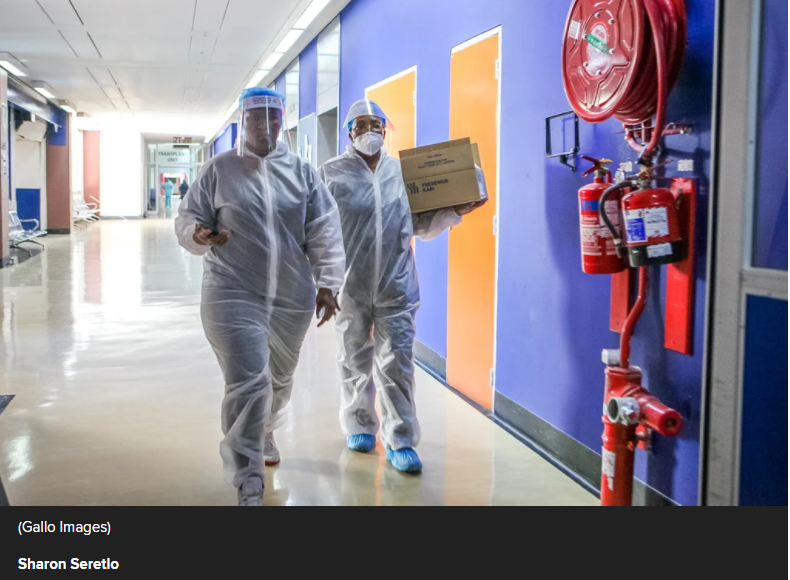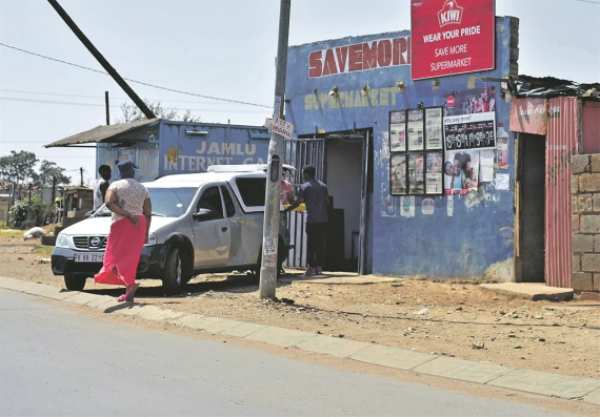- The Solidarity Fund has raised just over R3 billion since being established earlier this year to respond to the impact of Covid-19 on society.
- The work of the Solidarity Fund might not continue longer than 2021, members of Parliament heard.
- The fund has helped secure personal protective equipment, ventilators, as well as addressing food security and promoting education on Covid-19.
The Solidarity Fund, established earlier this year to respond to the health and social impacts of Covid-19, does not foresee having to continue its work beyond the second wave of the pandemic, members of Parliament heard.
Officials from the fund, established at the onset of the National State of Disaster in March, on Tuesday briefed the Standing Committee on Finance on its work. It has since raised over R3.2 billion from over 2 700 companies and more than 300 000 individuals.
Among those who contributed include Mary Oppenheimer, the daughter of the late mining magnate Harry Oppenheimer. Oppenheimer and her daughters contributed R1 billion to the fund. Other major contributors to the fund include Naspers Group, which gave R500 million and government and the national lottery which jointly provided R150 million in seed funding.
Speaking during the briefing, Adi Enthoven of the fund, said that the highest amount of donations from individuals in provinces came the Free State and the North West. This is mainly donations from R2 to R10, which individuals donated when shopping at Usave or Shoprite. "We are a fund for all of South Africa and accountable to all of South Africans."
He explained the fund worked with sourcing personal protective equipment, ventilators, as well as humanitarian efforts in ensuring food security and responding to gender-based violence. The fund also assisted in information and education campaigns on the virus, as well as efforts to encourage behavioral change. The fund mainly focused on reaching the most vulnerable communities in society. It partnered with a number of organisations to expand its reach.
Responding to questions about whether the work of the fund will continue its work long term, newly appointed CEO Tandi Nzimande said the fund is anticipated to wrap up its operation "within aa 12-month period", especially as it was set up specifically as a rapid response fund for the Covid-19 pandemic.
Nzimande said the fund expected to wrap up its work already, but it now wants to address the impacts of a second wave of infections.
The fund expects that once Covid-19 becomes more normalised like the flu or measles, the country would be able to deal with it directly.
"We do not see at this stage, that the fund will have a longer life than the end of next year," said Nzimande.
There has been a resurgence of infections, paarticularly in the Eeastern Cape and Western Cape, News24 previously reported.
Members of parliament also probed officials on how administration of the fund was financed. Chairperson of the fund, Gloria Serobe explained the fund does not carry overheads. "No money of the fund is spent on administration," she said. The previous CEO Nomkhita Nqwenidid work pro-bono while the current CEO is being seconded.
Martin Kingston, who is the chair of Business for South Africa and also part of the team of the Solidarity Fund, explained that quite a few resources had been seconded from other companies and organisations. "Over 60 organisations, institutions, NGOs, both onshore and offshore contributed time and resources pro bono," he said. This includes fund administration services, IT support and marketing and specialist skills.
The fund also addressed questions on transparency on beneficiaries and donors.
Serobe explained all companies and those who benefited are published on the website. However, there are donors who have asked to remain anonymous, the committee heard. Nzimande said the fund would endeavour to provide demographic information of beneficiaries.
Read the full article HERE





